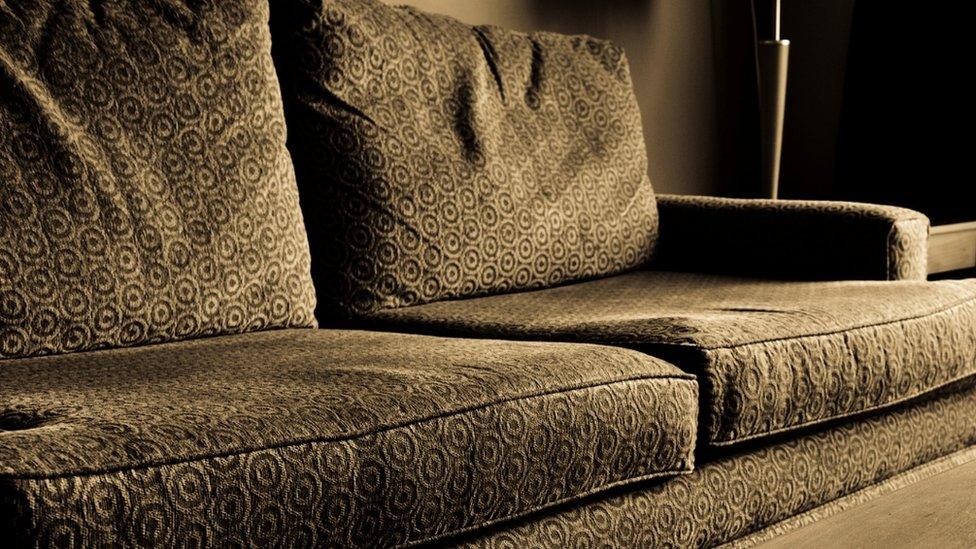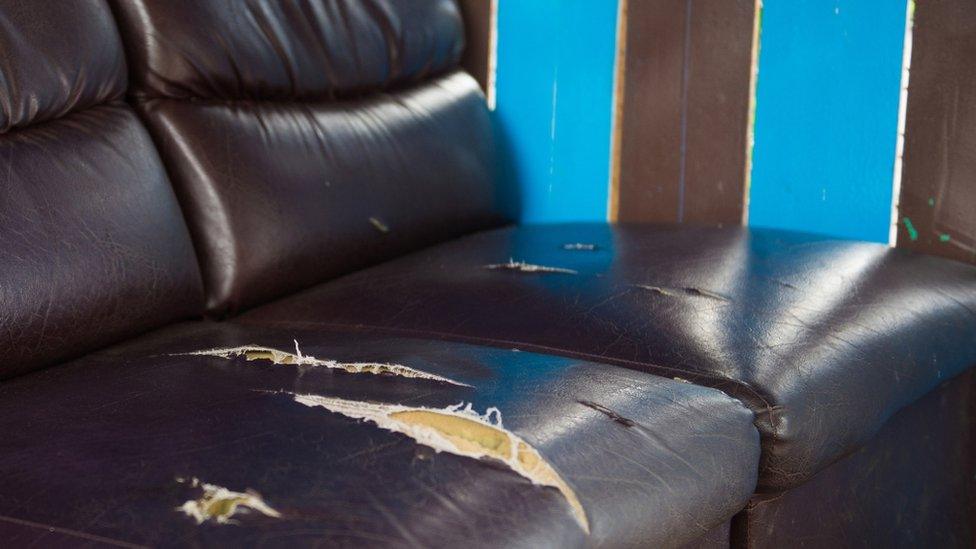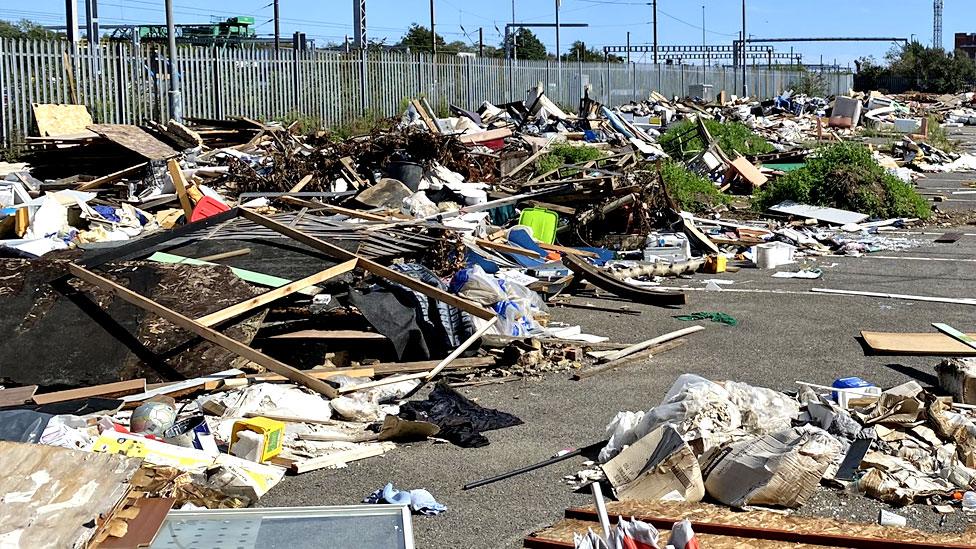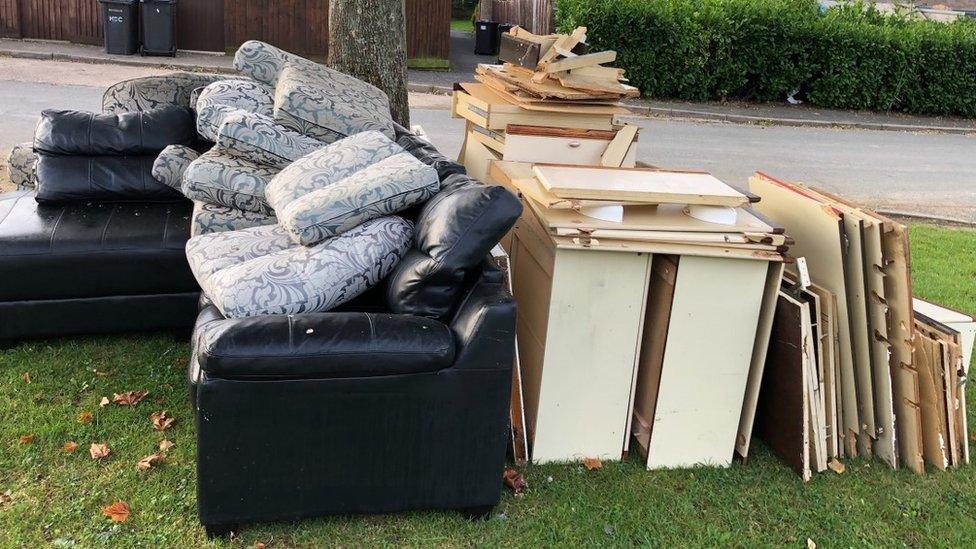Waste laws see councils in Cambridgeshire halt old sofa collections
- Published

Cambridgeshire councils are waiting to find out what they can do with old soft furnishings before resuming waste collections
Five councils have halted waste collections of old soft furnishings as a result of new disposal rules.
The Environment Agency (EA) said sofas, cushions and chairs must be incinerated from 1 January, to get rid of harmful persistent organic pollutants (POPs).
Cambridgeshire County Council, which does not have an incinerator facility, said it was looking for interim solutions.
A district council said stopping collections could lead to fly-tipping.
County councils are responsible for the disposal of local council collected waste.
East Cambridgeshire District Council, external (ECDC) has stopped collections and drop-offs of the items at its waste centres.
On 30 December it said: "A confirmed list of incinerators able to receive POPs has not yet been supplied to East Cambridgeshire District Council.
"We are urgently working with Cambridgeshire County Council and our partners to resolve this."
Conservative leader of ECDC, Anna Bailey, said: "This was a massive urgent issue for the county council to deal with immediately.
"It will lead to a rise in fly-tipping, which we will have to clear up, but where do we send these items to when we do pick them up?"
In a statement the county council said "because Cambridgeshire's waste disposal methods rely on the use of landfill, it has been extremely challenging to secure compliant disposal routes. This work is now urgently taking place".
It added: "Whilst seeking a compliant disposal outlet, the council is also discussing the possibility of storage solutions in the interim.
"Once a solution is in place, the council will provide further updates."

New environmental rules means old sofas and soft furnishings will have to be incinerated instead of going into landfill
Cambridge City Council, external, Huntingdonshire, external, Fenland, external, and South Cambridgeshire, external district councils have all halted collections and drop-offs of soft furnishings at their waste recycling plants.
Legislation relating to POPs, brought in in 2007, had not previously been enforced by the EA until now.
"Persistent organic pollutants are harmful to human health and the environment, so it is important that waste containing these chemicals is taken to authorised facilities for destruction," the agency said.
"Defra and the EA have been engaging with local authorities since 2021 to explain the law around these chemicals and offer guidance where necessary."
On its website,, external the EA instructs that upholstered domestic seating and any mixed, residual, (or bulky) household waste with which it has been mixed with, should be sent for destruction to a municipal waste incinerator, hazardous waste incinerator, or cement kiln.
All the councils are encouraging people to consider donating items to charities or re-purposing them rather than disposing.

Find BBC News: East of England on Facebook, external, Instagram, external and Twitter, external. If you have a story suggestion email eastofenglandnews@bbc.co.uk, external
- Published21 January 2022

- Published12 October 2021
